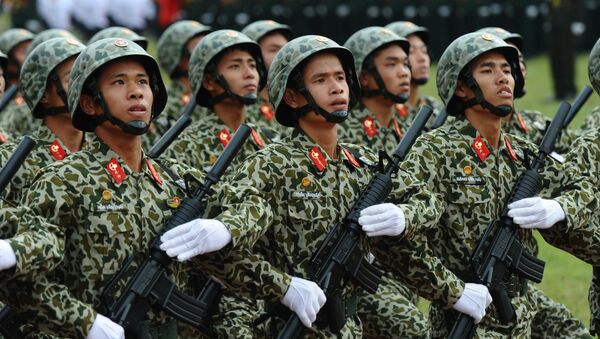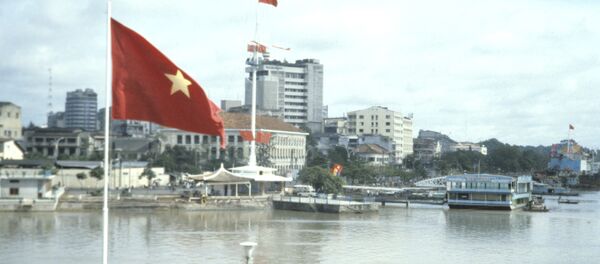WASHINGTON (Sputnik) — Earlier in the day, Obama announced in a news conference during his visit to Hanoi that the 50-year-old US ban on arms sales to Vietnam would be lifted.
"Obama says he's in favor of selling arms to Vietnam so they can defend themselves. If he's not talking about China than whom is he talking about?" Fermer stated on Monday.
However, Fermer, who served in the US Navy during the Vietnam War, warned that the move was unnecessary as Vietnam did not seek expensive high-tech US weapons anyway.
"The Vietnamese have done an admirable job defending themselves for many decades: They kicked out the French when they decided to finally do that and then they kicked out the Americans too."
Fermer recalled that massive US arms sales had already generated hugely expensive and unnecessary arms build-ups in Central and Eastern Europe, in the Middle East and in Northeast Asia and the prospect of increased sales to Vietnam would boost pressures to boost arsenals in Southeast Asia too.
"America's policy of arming the world to its teeth doesn't need to apply here [in the Southeast Asia region]," Fermer observed.
Obama’s willingness to sell weapons to authoritarian Vietnam also made a mockery of his professed championing of democratic and human rights values, Independent Institute Center on Peace and Liberty Director Ivan Eland told Sputnik.
"The Vietnamese regime remains autocratic, having undertaken only a few economic and almost no political reforms, while still possessing an abysmal human rights record," Eland noted.
"The United States needs not only to talk to authoritarian regimes but to get along with them. If Washington followed a similar policy in the imperfect countries of the greater Middle East, it would withdraw from Afghanistan, Iraq and Syria."
Obama’s visit to Vietnam highlighted how misguided US policy was toward Vietnam in the 1960s, just like its perceptions of the Middle East today, Eland recalled.
"As with Vietnam, none of these Middle Eastern countries is strategic for US security. During the 1960s and early 1970s, US leaders somehow thought the backwater country of Vietnam was strategic, but instead they got stuck in a swamp. The same is true today in the Middle East."
Obama’s visit to Hanoi should remind Americans that trying to change foreign cultures at gunpoint did not work in the 1960s and does not work in the Middle East today, Eland concluded.




